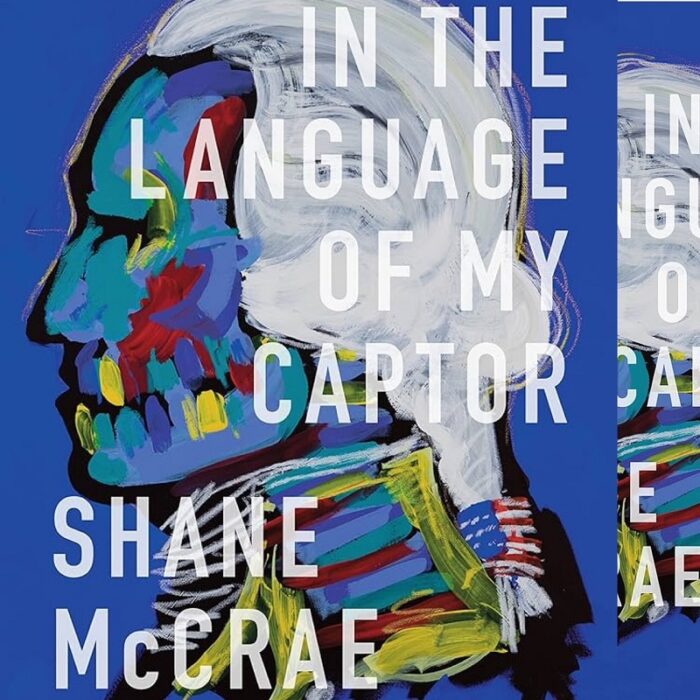Shane McCrae’s critically acclaimed collection, “In the Language of My Captor,” offers a unique narrative of intertwined histories, memories, and identities. These collective voices echo the author’s struggle to define his identity amidst a complex socio-cultural background of African-American heritage and white American upbringing. McCray’s poems delve into the power dynamics of language itself, exposing the wounds of captivity and the longing for freedom therein.
The opening poem, “Love,” invites the reader into the intimate space of the speaker, offering a haunting story of an unlikely companionship under the stars. McCrae writes, “Those whose eyes are raised to God,/ Whose hands reach out,/ And at the edges of whose robes/ The animals pray” (McCrae, 3-5). Here, the poem articulates a melancholic yearning for unity, revealing a profound symbiosis between man and nature, man and God, and master and slave. The unique language used becomes an essential tool to captivate the reader’s empathy and compassion rooted deep within the human psyche.
In “As Long as Trees Last,” McCrae explores the ambiguous relationship between the captor and the captured, inscribing the distorted human experiences in captivity as he notes, “I know my master, his countenance, his tobacco breath/ I have been on this island and I have been captive…” (McCrae, 19-20). This intricate dynamic also speaks volumes about the speaker’s dual identity — a captive slave and a Native American, facing both institutionalized racism and dehumanization. Held within the grasp of a detached observer, this poem underlines the ironies of captivity, freedom, and identity. McCrae’s opulent use of metaphor and symbolism effectively challenges the reader’s perspectives on the traditional narratives of captivity.
“In the Language of My Captor,” the poem from which the collection takes its name, exhibits McCrae’s adeptness at laying bare the power dynamics entrenched in language. McCrae astutely writes, “No one has imagined us. We want to live like trees, / Sycamores blazing through the sulfuric air, / Dappled with scars, still exuberantly budding…” (McCrae, 27-29). The poet strikes at the heart of the invisibility and marginalization of African Americans, crafting an image of beings thirsting for acknowledgment and the freedom to exist in their own right. This potent assertion through McCrae’s language challenges both contemporary and historical power structures.
McCrae’s “Jim Limber the adopted mulatto son of Jefferson Davis” is poignant in its depiction of historical realities of racial discrimination and the delicate issue of belonging. The poem pulses with the anguish of a racially mixed child, caught between two worlds, as McCrae articulates, “I was the master’s pet, half slave, half free,/ The cursed offspring of a double root” (McCrae, 18-19). The strained language captures the child’s struggle with his dual identity, circling constantly around a debilitating question of fitting in; a relevant dilemma in America’s racially divided history.
In another compelling poem, “Night,” McCrae allows us a glimpse into the private life of the captive where their joy and pain are most acute. He writes, “Love in the voice of the bird/ Night in the voice of the bird/ I have not lied to anyone/ But I am afraid” (McCrae, 40-43). This poem elucidates the perpetual fear the captive experiences, entrenched deep within their psyche, even in moments of innocent joy – an intense illustration made possible through the descriptive language.
To read McCrae’s “In the Language of My Captor” is to join in a profound dialogue about identity, race, and power dynamics in America. By masterfully wielding the language of his captor, Shane McCrae provides an insightful perspective on the complexities of captivity, place, and belonging. In doing so, he uses language not only as a tool for survival but also as a weapon for resistance and self-definition.








